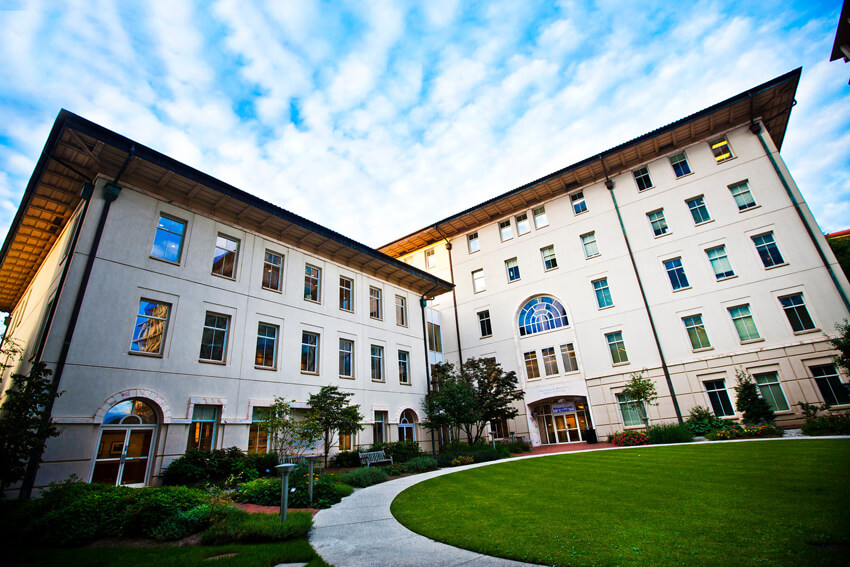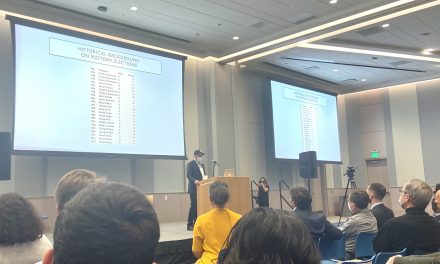Emory University’s Nell Hodgson Woodruff School of Nursing will offer NRSG 435, “Culture, Immigration, and Health Outcomes” in spring 2023. This will be one of the few nursing school courses open to both nursing and non-nursing students. According to the Emory Course Atlas, the class will provide “an overview of key interdisciplinary topics in culture, immigration, and health outcomes in the [United States],” as well as explain global health disparities in immigrant communities and how to address the issue.
Wenhui Zhang, an assistant professor in the nursing school, pioneered the course.
“We all know the U.S. is called a country of immigration,” Zhang said. “We are kind of surprised to know that there are not a lot of courses related to immigrants and their health in nursing or public health area.”
Zhang and Jinbing Bai, another assistant professor in the nursing school, first developed the idea in late 2019 as post-doctoral students with offices right across from each other. At the time, Emory had launched the Pilot Grant Program, a grant opportunity aimed at researching bidirectional global health disparities in five countries, including China.

The Nell Hodgson Woodruff School of Nursing will offer NRSG 435 next semester. Courtesy of Emory University
As Chinese immigrants themselves, Zhang and Bai were interested in studying the physical and mental impacts of immigration, such as changes in the gut microbiome, depression and anxiety. When the Halle Institute for Global Research and the Center for Faculty Development and Excellence created the Global Atlanta Innovative Teaching Grant, which aims to develop curricula with an international scope, Zhang and Bai leaped at the opportunity to expand their research to a course. They later applied and were accepted for the grant.
“The purpose of the course is, first of all, to share some experience based on our experience as immigrants and also our experience as researchers working with some immigrants,” Zhang said. “[We] want to kind of encourage people with other background[s], not just Asian, [to] join the course and share their story.”
Each immigrant population faces different problems, ranging from mental health stigma to health literacy issues and language barriers, Bai explained. Their intent is to introduce and synthesize theories and background information on how immigration impacts health. They have also invited guest speakers who conduct research with Guatemalans and farm workers in Florida to speak to students.
Immigrating to a new environment is a “big life event” with both biological and psychosocial impacts, even for second-generation immigrants and onwards, Bai added. It can change one’s gut and oral microbiome and raise the likelihood of metabolic syndrome, a group of conditions that can increase the risk of diabetes, heart disease and strokes. The psychosocial impact of immigration involves struggles with assimilating into a new culture, loneliness and the model minority myth, which assumes all Asian-Americans to be hard-working, smart and uncomplaining. There are also the economic impacts of both providing income to family back home and navigating a more expensive world.
Zhang described that her roommate became sick during her first year of her doctorate. He had an emergent stomach issue and needed to go to the emergency room but was told that healthcare — including ambulance rides — in the United States was very costly. Having only just arrived in the country, he knew few people in the country, had limited transportation options and was reliant on Emory’s health insurance to cover most of the costs, the average of which is $1,082 for an emergency room visit and $1,189 for an ambulance ride in 2019 with insurance.
“Immigrants really suffer,” Zhang said. “They have to make decisions probably more based on their money than what their health needs. So the struggles, that’s something most people that are not immigrants … it’s hard for them to understand.”
The COVID-19 pandemic has made immigration issues and lack of resources “stand out,” according to Bai, who cited both the increased scrutiny of Chinese people during the pandemic and the spike in anti-Asian hate crimes, which rose by more than 300% in 2021.
Zhang and Bai said they hope offering this course to students of all majors will allow communities to hold conversations that help each person understand their role in the care process and improve healthcare outcomes.
“The immigration population is a population we should take care of or we should pay attention to,” Bai said. “It’s not only for healthcare providers. It’s for everyone.”
Nica Leung (she/her, 26C) is from Portland, Ore., and is majoring in political science and anthropology on the pre-law track. Outside of the Wheel, she can be found inhaling matcha lattes at Kaldi's, playing Neko Atsume, exploring the Emory arts scene or spending time with friends.



